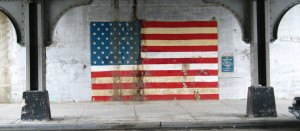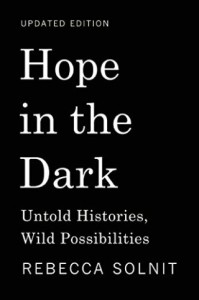This day called Independence.
July 3, 2016Neil Young
‘Was he thinkin’ about my country
Or the color of my skin?
Was he thinkin’ ’bout my religion
And the way I worshipped him?
Did he create just me in his image
Or every living thing?
When God made me
Was he planning only for believers
Or for those who just have faith?
Did he envision all the wars
That were fought in his name?
Did he say there was only one way
To be close to him?
When God made me
Did he give me the gift of love
To say who I could choose?
When God made me
Did he give me the gift of voice
So some could silence me?
Did he give me the gift of vision
Not knowing what I might see?
Did he give me the gift of compassion
To help my fellow man?
When God made me
~
What do we celebrate this Independence Day? Freedom? Democracy? Choice? Hope? Are we a democracy, a republic, an autocracy, or plutocracy? As Americans celebrate with parades, bar-b-q’s and boats, author, teacher, and speaker Parker Palmer writes this July 4th:
‘Given the deep concern many of us feel about this country—even as we celebrate all that’s good about it—these words from Terry Tempest Williams seem well worth pondering:
“The human heart is the first home of democracy. It is where we embrace our questions. Can we be equitable? Can we be generous? Can we listen with our whole beings, not just our minds, and offer our attention rather than our opinions? And do we have enough resolve in our hearts to act courageously, relentlessly, without giving up—ever—trusting our fellow citizens to join with us in our determined pursuit of a living democracy?”
Williams reminds us that what we need to preserve the great but fragile political legacy called democracy is not beyond our reach. It is very close at hand—as close as our own hearts.
Today and every day, let’s celebrate democracy as the great gift it is—and invite “the better angels of our nature” to overcome all that has threatened it from the day it was born.’
This country was founded on suffering, grounded in the annihilation of Native Americans, the brutality of slavery, and the struggle of immigrants. It was suffering born of power and greed. We live in the grace of those who sacrificed for a fantasized ideal we call freedom and democracy. Racism, bigotry, mass incarceration, poverty, illness, homelessness, random acts of violence – – is this democracy? We are governed and manipulated by the wealthy and false rhetoric.
Yes, the human heart, as Williams shares, is the ‘home of democracy’, but do our actions reflect the potentialities? Perhaps this outlook will seem dire and pessimistic. I offer, however, that the opposite of pessimism is not optimism, but activism. Therein lies our hope. Rebecca Solnit writes in her book, ‘Hope in the Dark (2016),’
‘This is an extraordinary time full of vital, transformative movements that could not be foreseen. It’s also a nightmarish time. Full engagement requires the ability to perceive both.’
[…]
‘Hope doesn’t mean denying these realities. It means facing them and addressing them by remembering what else the twenty-first century has brought, including the movements, heroes, and shifts in consciousness that address these things now.’
[…]
‘This has been a truly remarkable decade for movement-building, social change, and deep, profound shifts in ideas, perspective, and frameworks for broad parts of the population (and, of course, backlashes against all those things).’
Hope in activism, born of suffering. Holocaust survivor Victor Frankl writes in his book, ‘Man’s Search for Meaning,’
‘Does all this suffering, dying around us, have meaning?’
[…]
Et lux in tenebris lucet:
‘And the light shineth in the darkness.’
Let us this Independence day celebrate the ‘last of the human freedoms,’ as Frankl taught us, ‘The ability to choose one’s attitude in a given set of circumstances.’
Love and hope in suffering is attitude that begets positive action, lest we suffer from indifference.
Elie Weisel:
‘And action is the only remedy to indifference, the most insidious danger of all.’
Nick Licata writes in his book, ‘Becoming a Citizen Activist,’
‘Every generation of students has the power to shape the future. A democracy only works when all citizens can fairly participate in it. Show up at the voting booths. Let our voices be heard. The power for changing the world lies—with us.’
Hope.
Victor Frankl:
‘Without hope there is no meaning. Without meaning there is no hope.’
~
Elie Wiesel:
‘For me, hope without memory is like memory without hope.’
~
Maria Papova:
Critical thinking without hope is cynicism. Cynicism without critical thinking is naïveté.
~
Rebecca Solnit
The moment passed long ago, but despair, defeatism, cynicism, and the amnesia and assumptions from which they often arise have not dispersed, even as the most wildly, unimaginably magnificent things came to pass. There is a lot of evidence for the defense… Progressive, populist, and grassroots constituencies have had many victories. Popular power has continued to be a profound force for change. And the changes we’ve undergone, both wonderful and terrible, are astonishing.
[…]
This is an extraordinary time full of vital, transformative movements that could not be foreseen. It’s also a nightmarish time. Full engagement requires the ability to perceive both.
[…]
There’s a public equivalent to private depression, a sense that the nation or the society rather than the individual is stuck. Things don’t always change for the better, but they change, and we can play a role in that change if we act. Which is where hope comes in, and memory, the collective memory we call history.
[…]
You row forward looking back, and telling this history is part of helping people navigate toward the future. We need a litany, a rosary, a sutra, a mantra, a war chant for our victories. The past is set in daylight, and it can become a torch we can carry into the night that is the future.
Terry Tempest Williams
‘I so love life and trust it.’
Perhaps.
One day.
Trying.
A manifesting mantra.


